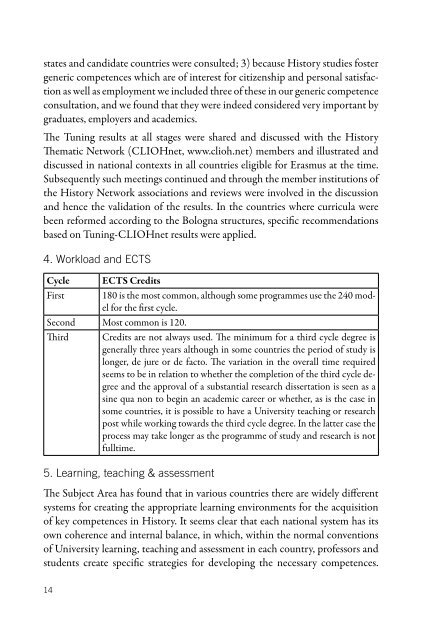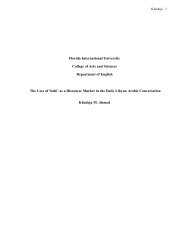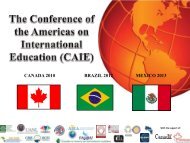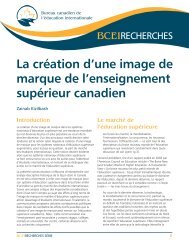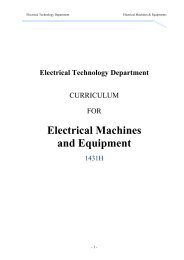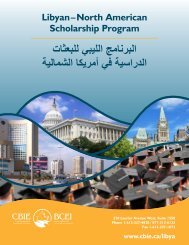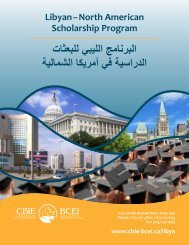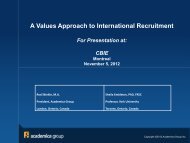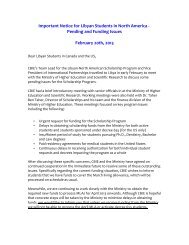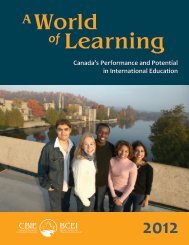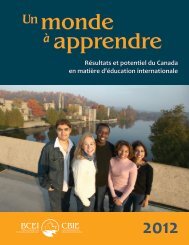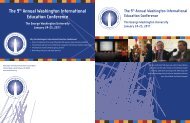Creating a New Historical Perspective: EU and the Wider World ...
Creating a New Historical Perspective: EU and the Wider World ...
Creating a New Historical Perspective: EU and the Wider World ...
You also want an ePaper? Increase the reach of your titles
YUMPU automatically turns print PDFs into web optimized ePapers that Google loves.
states <strong>and</strong> c<strong>and</strong>idate countries were consulted; 3) because History studies foster<br />
generic competences which are of interest for citizenship <strong>and</strong> personal satisfaction<br />
as well as employment we included three of <strong>the</strong>se in our generic competence<br />
consultation, <strong>and</strong> we found that <strong>the</strong>y were indeed considered very important by<br />
graduates, employers <strong>and</strong> academics.<br />
The Tuning results at all stages were shared <strong>and</strong> discussed with <strong>the</strong> History<br />
Thematic Network (CLIOHnet, www.clioh.net) members <strong>and</strong> illustrated <strong>and</strong><br />
discussed in national contexts in all countries eligible for Erasmus at <strong>the</strong> time.<br />
Subsequently such meetings continued <strong>and</strong> through <strong>the</strong> member institutions of<br />
<strong>the</strong> History Network associations <strong>and</strong> reviews were involved in <strong>the</strong> discussion<br />
<strong>and</strong> hence <strong>the</strong> validation of <strong>the</strong> results. In <strong>the</strong> countries where curricula were<br />
been reformed according to <strong>the</strong> Bologna structures, specific recommendations<br />
based on Tuning-CLIOHnet results were applied.<br />
4. Workload <strong>and</strong> ECTS<br />
Cycle ECTS Credits<br />
First 180 is <strong>the</strong> most common, although some programmes use <strong>the</strong> 240 model<br />
for <strong>the</strong> first cycle.<br />
Second Most common is 120.<br />
Third Credits are not always used. The minimum for a third cycle degree is<br />
generally three years although in some countries <strong>the</strong> period of study is<br />
longer, de jure or de facto. The variation in <strong>the</strong> overall time required<br />
seems to be in relation to whe<strong>the</strong>r <strong>the</strong> completion of <strong>the</strong> third cycle degree<br />
<strong>and</strong> <strong>the</strong> approval of a substantial research dissertation is seen as a<br />
sine qua non to begin an academic career or whe<strong>the</strong>r, as is <strong>the</strong> case in<br />
some countries, it is possible to have a University teaching or research<br />
post while working towards <strong>the</strong> third cycle degree. In <strong>the</strong> latter case <strong>the</strong><br />
process may take longer as <strong>the</strong> programme of study <strong>and</strong> research is not<br />
fulltime.<br />
5. Learning, teaching & assessment<br />
The Subject Area has found that in various countries <strong>the</strong>re are widely different<br />
systems for creating <strong>the</strong> appropriate learning environments for <strong>the</strong> acquisition<br />
of key competences in History. It seems clear that each national system has its<br />
own coherence <strong>and</strong> internal balance, in which, within <strong>the</strong> normal conventions<br />
of University learning, teaching <strong>and</strong> assessment in each country, professors <strong>and</strong><br />
students create specific strategies for developing <strong>the</strong> necessary competences.<br />
14


